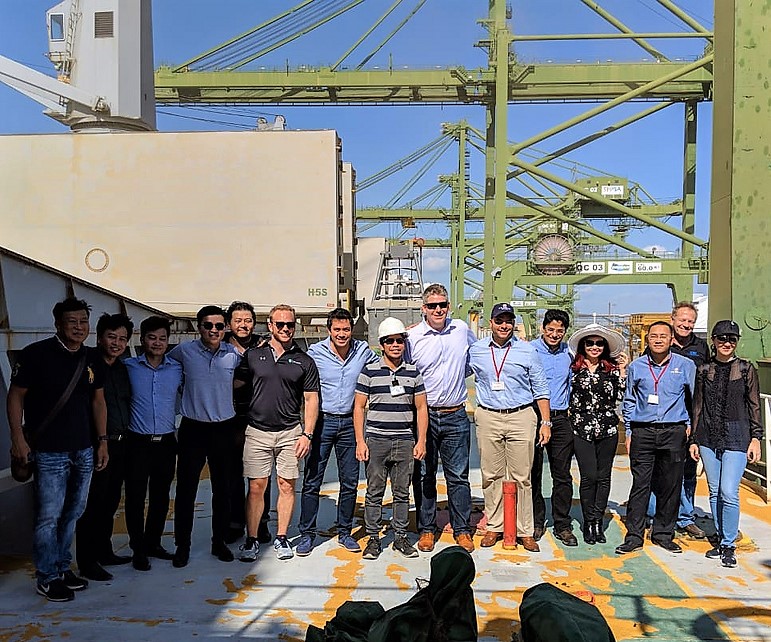In early 2019, the Vietnamese swine industry was stricken by the fatal and highly communicable disease known as African Swine Fever (ASF). This was a major threat to the Vietnamese swine industry, which makes up roughly 72 percent of the overall meat output in the country.
At the onslaught of ASF, USDA projected a sharp decline in feed demand, and the outlook for U.S. feed grain exports were bleak. The Council sent its assistant director for Southeast Asia to the country for three weeks to assess the situation and restructure the organization’s efforts there in light of this immediate demand risk.
On the ground, Council staff and representatives were able to observe that farmers were culling swine herds and clearing barns to transition to layers, broilers or ducks. Farmers were also exploring expanding into aquaculture with freshwater ponds in the delta region and offshore in cages along the coast. While it was clear Vietnamese producers wanted to move away from swine production into other species, it also became clear they lacked the tools necessary to successfully make the switch to alternative species.
With this information, Council personnel on the ground began to provide direct operational assistance to these former hog producers. They oversaw the purchasing of day-old chicks, taught DDGS self-mixing practices, and gave advice on basic feed safety. In the process, DDGS soon became synonymous with poultry and layer feeding in these new farming communities.
Because of these efforts at a very local level, DDGS imports into Vietnam actually grew by more than 81,000 MT during June, July and August versus the same timeframe the year before, at a time when an estimated 9 million pigs (27 percent of the total population) were culled due to ASF. The short-term effect was immediate sales, but the long-term impact will come from gaining the trust and appreciation from the Vietnamese industry during a time of hardship. The Council now has an effective, proven blueprint for Vietnamese engagement moving forward.
The Council invested $9,000 of Market Access Program (MAP) funds in this outreach. Though the return on this investment in terms of relationships, prevention of demand destruction, and future sales is complicated to calculate, DDGS sales are clear: in June, July and August of 2019, purchases were at 355,382 MT vs. 273,588 MT the same period in 2018, an increase of 81,794 MT, with a value of $17.1 million. This alone would result in a return on investment (ROI) of $1,910 for every $1 of MAP funding invested.
Read more about the Council’s work in Vietnam.
About The U.S. Grains Council
The U.S. Grains Council develops export markets for U.S. barley, corn, sorghum and related products including distiller’s dried grains with solubles (DDGS) and ethanol. With full-time presence in 28 locations, the Council operates programs in more than 50 countries and the European Union. The Council believes exports are vital to global economic development and to U.S. agriculture’s profitability. Detailed information about the Council and its programs is online at www.grains.org.

